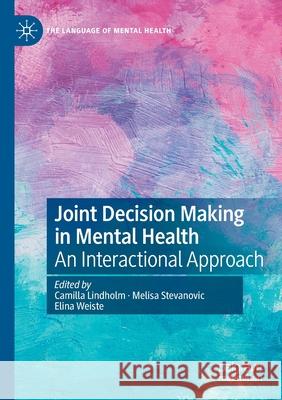Joint Decision Making in Mental Health: An Interactional Approach » książka
topmenu
Joint Decision Making in Mental Health: An Interactional Approach
ISBN-13: 9783030435332 / Angielski / Miękka / 2021 / 310 str.
Joint Decision Making in Mental Health: An Interactional Approach
ISBN-13: 9783030435332 / Angielski / Miękka / 2021 / 310 str.
cena 603,81
(netto: 575,06 VAT: 5%)
Najniższa cena z 30 dni: 578,30
(netto: 575,06 VAT: 5%)
Najniższa cena z 30 dni: 578,30
Termin realizacji zamówienia:
ok. 22 dni roboczych
Dostawa w 2026 r.
ok. 22 dni roboczych
Dostawa w 2026 r.
Darmowa dostawa!
Kategorie:
Kategorie BISAC:
Wydawca:
Palgrave MacMillan
Seria wydawnicza:
Język:
Angielski
ISBN-13:
9783030435332
Rok wydania:
2021
Wydanie:
2020
Numer serii:
000816948
Ilość stron:
310
Waga:
0.43 kg
Wymiary:
21.01 x 14.81 x 1.88
Oprawa:
Miękka
Wolumenów:
01
Dodatkowe informacje:
Wydanie ilustrowane











